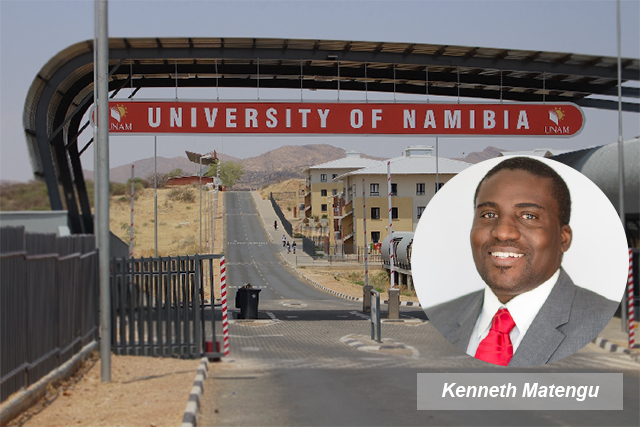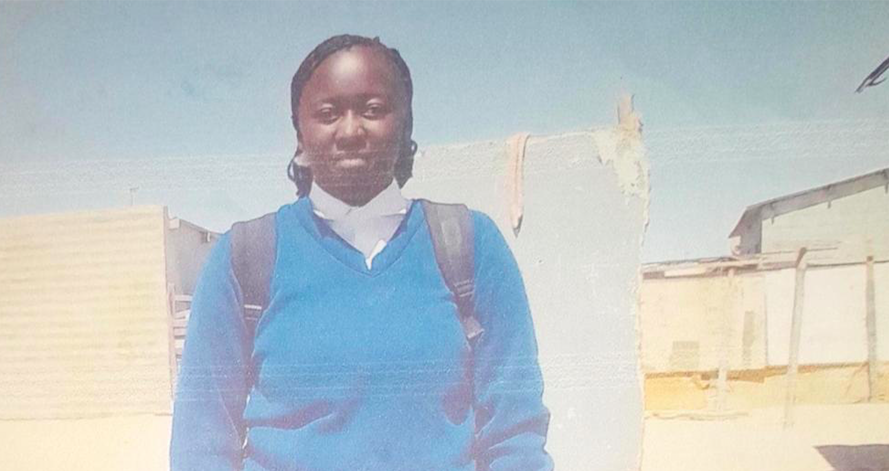THE University of Namibia’s vice chancellor has proposed plans to increase the minimum enrolment requirements from 25 points to 35 points for the education faculty.
This, Kenneth Matengu believes, can be done to strengthen preparations for quality teaching and learning in the country.
Matengu announced this yesterday during the opening ceremony of the Teacher Education Indaba in Windhoek.
The two-day meeting seeks to capture insight and knowledge on quality teacher preparation from experts, researchers and policy makers, among others.
During the meeting, senior members of the education fraternity will examine the kinds of knowledge, skills, values and attitudes that 21st century teachers should possess to be successful with imparting knowledge to pupils.
They will share expertise and experiences on the best practices for design and delivery of teacher education programmes, and interrogate teacher preparation issues.
They will further deliberate on strategies to assure the quality of entrants to teacher training.
Matengu said there is a need to examine the kinds of individuals who are recruited as trainee teachers, saying the individuals who currently enrol for education programmes are those who could not make the grade in other faculties such as law, medicine and science.
“Why is it that education, which I would like to describe as the genetic make-up of what the field of teaching is, tends to gather those who are the weakest?” he said.
Matengu said he has identified a need to change the minimum requirements for those wishing to enrol as trainee teachers at the university.
“They will have to compete in the same way as those who are going into medicine, dentistry, and pharmacy and other professions. We are talking about nothing less than 30 to 35 points in five subjects – not the 25 they get now,” he said.
Matengu identified the need for a professional council for teachers to regulate the profession, saying that the role of regulating the profession and setting standards cannot be left to trade unions. He said the implementation of new standards will ensure that teachers are not only transmitters of knowledge, but that they will be creators and producers of knowledge.
“When we teach about fruit, we use fruit that they don’t know. We cannot be teaching our children cranberries when they are not in the environment that you [teachers] are,” said Matengu.
Speaking at the same event, minister of higher education Itah Kandjii-Murangi said the quality of teachers determines the quality of a country’s education system as they are the assets that deliver a workforce fit for the 21st century.
Kandjii-Murangi called on relevant stakeholders in education to collaborate to develop planning tools which inform the demand and supply of teachers.
“It is not enough to interrogate the content of teacher education programmes without anchoring these on to a policy framework,” she said.
Responding to questions asked by on the proposal to increase Unam’s entry requirements, Namibia National Students Organisation chairperson Simon Amunime yesterday said he supports increasing the standard of learning at universities in terms of the content offered. He, however, does not support the proposed increase to 35 points.
“People must understand that points only give you access to university but that does not determine that you are going to be a better graduate when you have 35 points. The standard aught to deal with the content that you are going to offer at those respective institutions, not really the requirements,”
Amunime said an increase regarding the entry requirements would result in a larger number of individuals with lower marks going to study abroad.
He said it would be better to decrease the requirement to 20 in order to increase access to university, thus, addressing the issue of the national shortage of teachers.
“It is 29 years after independence and we are still faced with a shortage of teachers. When we go to rural areas we find people who ended in Grade 10 who are teaching those children,” said Amunime.
“Education is a calling, it is not just for those who have achieved better points. So those who have 20 points in five subjects should be in a special programme that enables them to study,” he said.
Stay informed with The Namibian – your source for credible journalism. Get in-depth reporting and opinions for
only N$85 a month. Invest in journalism, invest in democracy –
Subscribe Now!






